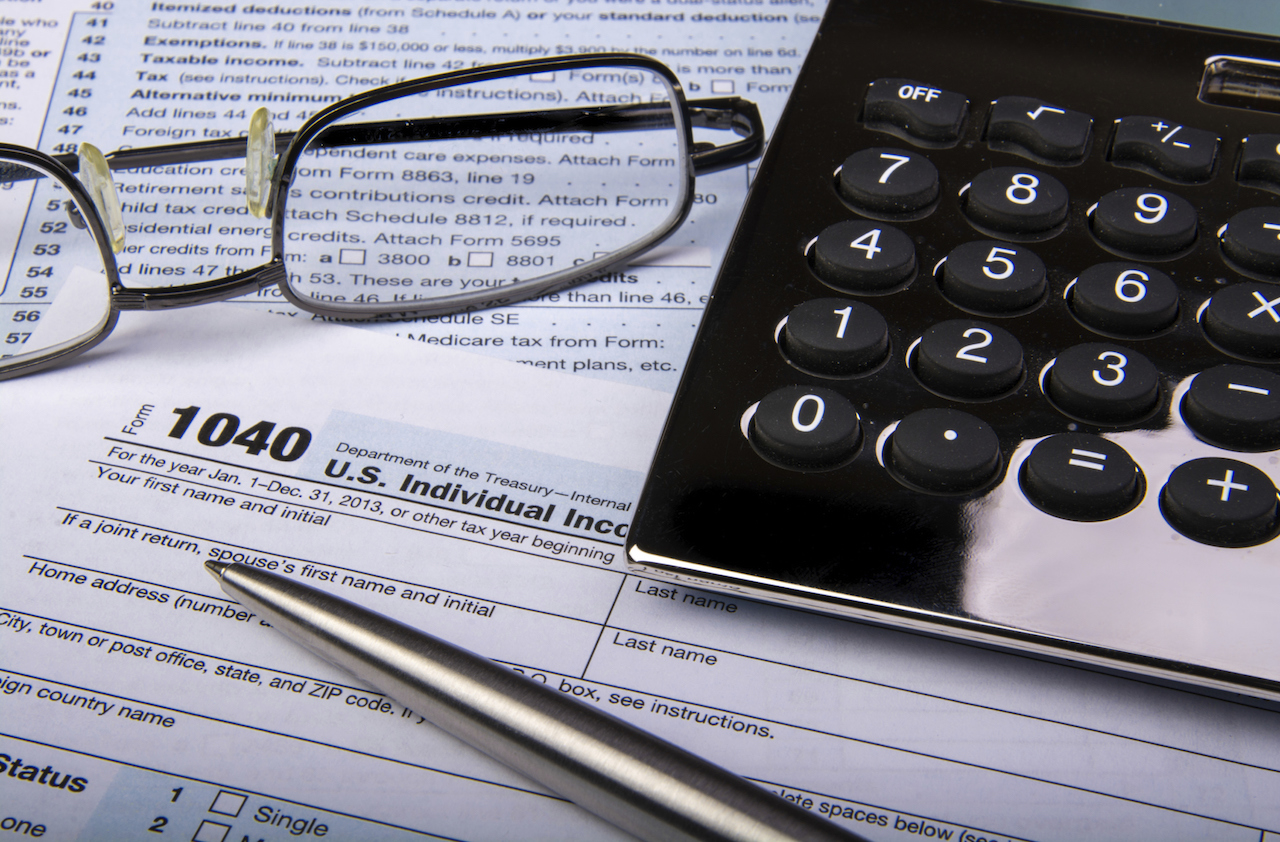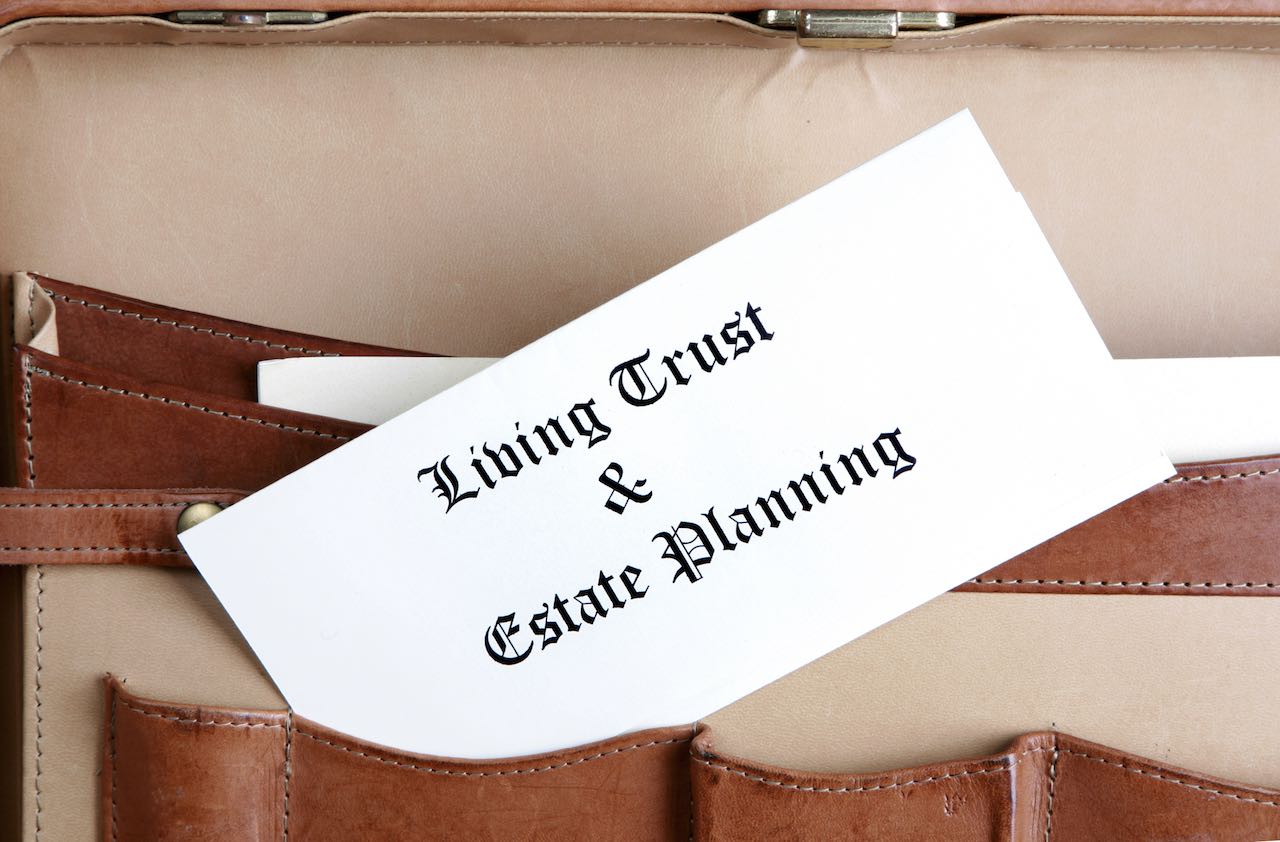Profit and prosper with the best of Kiplinger's advice on investing, taxes, retirement, personal finance and much more. Delivered daily. Enter your email in the box and click Sign Me Up.
You are now subscribed
Your newsletter sign-up was successful
Want to add more newsletters?

Delivered daily
Kiplinger Today
Profit and prosper with the best of Kiplinger's advice on investing, taxes, retirement, personal finance and much more delivered daily. Smart money moves start here.

Sent five days a week
Kiplinger A Step Ahead
Get practical help to make better financial decisions in your everyday life, from spending to savings on top deals.

Delivered daily
Kiplinger Closing Bell
Get today's biggest financial and investing headlines delivered to your inbox every day the U.S. stock market is open.

Sent twice a week
Kiplinger Adviser Intel
Financial pros across the country share best practices and fresh tactics to preserve and grow your wealth.

Delivered weekly
Kiplinger Tax Tips
Trim your federal and state tax bills with practical tax-planning and tax-cutting strategies.

Sent twice a week
Kiplinger Retirement Tips
Your twice-a-week guide to planning and enjoying a financially secure and richly rewarding retirement

Sent bimonthly.
Kiplinger Adviser Angle
Insights for advisers, wealth managers and other financial professionals.

Sent twice a week
Kiplinger Investing Weekly
Your twice-a-week roundup of promising stocks, funds, companies and industries you should consider, ones you should avoid, and why.

Sent weekly for six weeks
Kiplinger Invest for Retirement
Your step-by-step six-part series on how to invest for retirement, from devising a successful strategy to exactly which investments to choose.
Giddy over the fact that home prices in your area have ballooned to blimp-sized proportions? Well, get ready for the tax assessor to burst your bubble. Higher property values are inevitably followed by higher tax assessments.
That doesn't mean you have to accept the number. In fact, there's a big incentive to be a squeaky wheel, according to Pete Sepp, spokesman for the National Taxpayers Union, in Alexandria, Va.: More than half of those who appeal eventually get a reduction. "Assessments can be somewhat arbitrary," he observes. And David Wheelock, executive director of the International Association of Assessing Officers, in Chicago, says it's always worth a homeowner's time to investigate how assessments are made and to double-check for accuracy. "A lot of them aren't done right," he warns.
If you don't seek an immediate cure, an over-assessment could, like a case of malaria, plague you for years. You'll be paying out of pocket every year until you can get the property reassessed and the value lowered. Letting one over-inflated assessment go can also spiral into a bigger problem if across-the-board percentage hikes are later piled on. It's like the power of compound interest -- only in this instance it works to your financial detriment.
From just $107.88 $24.99 for Kiplinger Personal Finance
Become a smarter, better informed investor. Subscribe from just $107.88 $24.99, plus get up to 4 Special Issues

Sign up for Kiplinger’s Free Newsletters
Profit and prosper with the best of expert advice on investing, taxes, retirement, personal finance and more - straight to your e-mail.
Profit and prosper with the best of expert advice - straight to your e-mail.
And don't be lulled into complacency if your home is assessed for far less than you know it's really worth. In some jurisdictions, houses are assessed at a certain percentage of fair market value, known as the assessment ratio or level of assessment. Your home should be assessed at the same ratio as that used for everyone else. If it isn't, you're the victim of what's known as an illegal assessment.
But why challenge your assessment when you're really fuming about your tax bill? Simple: It's the only part of your tax bill that you can appeal. The other factor that determines your bill, the tax rate or mill rate, is set by local officials. The tax rate, expressed in dollars per $100 or $1,000 of assessed value, is multiplied by your assessed value to determine your bill. If you can get your assessed value lowered, your tax bite will shrink, too.
Look for mistakes
Appealing an assessment is neither arduous nor intimidating, says Amherst, Mass., real estate broker James Lumley, author of Challenge Your Taxes: Homeowner's Guide to Reducing Your Property Taxes (John Wiley & Sons, $19.95). Most disputes are settled not in a courtroom but in informal hearings with the assessor. "Usually, the process is not that big a deal," says Lumley.
You're most likely to get a reduction if you find a factual error in your assessment. In that case, all you have to do is make an appointment with the assessor and bring proof -- such as maps, photos and floor plans -- that backs up your claims. If, for example, you show that your modest three-bedroom, one-and-a-half-bath house is described as a stately five-bedroom, three-and-a-half-bath manse, a reduction may be made on the spot.
Mistakes in assessments happen more often than you might think. Ron Napier, a real estate tax appeal specialist in Oak Park, Ill., says he finds errors in at least 60% of the cases he takes on. For instance, the assessor may have entered the age of the house or the number of bedrooms and baths incorrectly, or overlooked something that's sure to hurt, such as leaky plumbing or asbestos siding. Or perhaps the assessment shows a garage that has since been demolished. Occasionally, the assessor records information on the wrong house. The most common mistake is measuring incorrectly (only heated and livable space should be counted). You probably won't get an adjustment if the difference you find is trivial, but Napier, a former assessor himself, has seen cases in which the measurements are off by as much as 1,000 square feet. "That's almost a house in itself," he says.
Analyze your situation
Another way to get a reduction is to show that the value placed on your home is out of whack compared with assessments received by your neighbors. This may also be a relatively simple process if you can find at least three properties in your neighborhood that are similar to yours but have significantly lower assessments. (Your tax jurisdiction may publish the magic number it deems "significant," such as 15%.) Real estate agents are usually happy to help homeowners learn the ropes because such assistance builds goodwill. "It's not an imposition," says agent Rick Turner of Hilton Head, S.C., who fields such requests two or three times a year. "After all, I'm in a service industry."
The trick is to find houses that are both close by and similar to your own. Supporting evidence, such as photos and floor plans, helps. If you can prove that your house is actually in worse condition than the comparables -- for instance, yours has a cracked foundation or flood damage, and your neighbor just put on a new deck and remodeled the kitchen with all the bells and whistles -- all the better.
There are other ways to get your assessment reduced, but these can be a bit more complicated and expensive. For instance, Lumley received an assessment of $45,000 a few years ago on a lot he had inherited in Pelham, Mass. But the four-acre lot was unbuildable because it sat on wetlands. Hiring a wetlands expert to prove this cost him more than $200, but it paid off in spades -- his tax bill was knocked down to $100 a year, roughly one-tenth of the original amount. "You have to make your case so that any damn fool can see there's an egregious error," he says.
In building a case, it helps to know what method is being used to value your home. Theoretically, similar houses are supposed to have equal and fair assessments, based on current market value. Assessors can use several techniques to determine this value, including the cost-per-square-foot method and the "income method" (which establishes how much income the property could produce). But most common are the "cost" approach (which estimates what it would cost to replace your house) and the "market" approach (which looks at prices fetched by similar homes that have sold recently).
Most homeowners find it easiest to use the market approach in their appeal, but it doesn't hurt to ask the assessor to walk you through the steps that government officials used to calculate the value. You may find that errors were made either in the calculations or in the assumptions behind them.
In theory, all houses are supposed to be inspected on the same day, in the same way, by well-trained assessors. But that just isn't how it happens in the real world. Because of Proposition 13, for example, properties in California are reappraised every time a change in ownership occurs or new construction takes place; otherwise, assessments can't be increased by more than 2% a year. Many other taxing juris-dictions rely on bulk appraisals, often done by outside companies rather than government employees, and don't bother to inspect anything except new construction or additions. Even when properties are inspected, the examination may be nothing more than a drive-by. There simply are not enough trained assessors to go around, and they are often prevented from going inside by growling, over-protective pets -- or owners.
To adjust for changes in prices between inspections, some taxing authorities use a system called trending. This determines a neighborhood's assessments based on current average and median sale prices. Such a system is inherently imperfect: Some houses will always be over-assessed, and others under-assessed. Because of trending, it's even possible for a house that recently sold below assessed value to get an assessment increase. "No one sits around looking at individual sales," says Bill Panaretos, chairman of the Multnomah County Board of Property Tax Appeal, in Oregon. "It's not picked up unless an individual appeals." If you can prove your house is currently on the market with a broker for less than its assessed value, or recently sold for less, you have good grounds for a reduction.
Make your case
Although you may need to ask, assessment numbers are public information and are available through your assessor's office. And while you're at it, check property cards to make sure that other homeowners in your neighborhood are being taxed consistently for improvements, such as swimming pools and carports.
Assessors usually ignore upgrades, such as a new roof or paint job, because they're part of routine maintenance. But what buyer isn't swayed by signs that a house has been well maintained? When you visit homes you'll be using as comparables, remember that houses are supposed to be assessed at market value. So anything that shows your home has fewer upgrades and less curb appeal than comparable houses should be documented.
Obviously, it's easier to compare apples to apples if you live in a subdivision or condominium complex. But even owners who live in less common circumstances have won appeals. Sean Sheridan lives in a duplex in a mostly commercial Chicago neighborhood. When he moved there in 1998, his property-tax bill was $9,400 -- way too high, Sheridan thought, especially because the bottom half of his building wasn't rented or producing income. Sheridan looked up 15 comparable rent-producing properties at the county courthouse and took pictures of five of them. Armed with these facts, he went before a review board and got his bill slashed by more than half. "What have you got to lose?" he asks.
Do you need to hire outside help to make a successful appeal? Sheridan didn't, although he admits it took two to three solid days of sleuthing through records to make his case. "You don't need a lawyer," he says. "They just take a cut." Surprisingly, John K. Norris, a Chicago tax assessment lawyer, agrees. "There's nothing I do that you can't do yourself," he says. Although some lawyers charge a flat fee, he charges a 37.5% contingency fee and won't take a case unless he thinks there's a good chance of winning. Most clients retain him because they don't want to spend the time digging through records or dealing with the paperwork.
Many people are intimidated at the thought of facing an assessor or dealing with a government bureaucracy. Don't be. If you don't get the reduction you want through an informal hearing with the assessor or appraiser, the next step in most places is an appearance before a board of fellow taxpayers, often called a board of equalization. Only the toughest cases land in the courts. And you can always enlist professional help any time along the way if you decide you need it.
Also, the law usually prevents the government from retaliating with a higher assessment if you appeal. What can happen, however, is that if you prove your neighbors' houses are under-assessed, their assessments may rise in subsequent years to match yours. But don't worry about finding a horse's head in your bed -- you won't be identified as the person who started the ball rolling.
Ratting out your neighbor won't necessarily put money in your pocket, but it might make you feel as if the system is treating you more fairly. Several years ago, Wheelock complained that his Boulder, Colo., neighbor's nearly identical patio home was assessed for less than his. He didn't really think his assessed value was way out of line, and as it turned out, it wasn't lowered. But the next year, his neighbor's assessment was quietly raised. That was enough to satisfy Wheelock, who no longer thinks he's paying more than his fair share of property taxes. And as for his neighbor? "He still doesn't know that I'm responsible," he says. (Not until now, that is.)
That sense of justice is really what Roger McIntyre of Dayton is after, too. What ticked him off was that the average assessment hike for comparable homes in his neighborhood was 17.5%, about one-third of the 45% boost on his home. "Even if they assess my house at $800,000, I don't care," he says, "as long as my neighbor is paying the freight, too."
--Reporter: Joan Goldwasser
Profit and prosper with the best of Kiplinger's advice on investing, taxes, retirement, personal finance and much more. Delivered daily. Enter your email in the box and click Sign Me Up.
-
 Look Out for These Gold Bar Scams as Prices Surge
Look Out for These Gold Bar Scams as Prices SurgeFraudsters impersonating government agents are convincing victims to convert savings into gold — and handing it over in courier scams costing Americans millions.
-
 How to Turn Your 401(k) Into A Real Estate Empire
How to Turn Your 401(k) Into A Real Estate EmpireTapping your 401(k) to purchase investment properties is risky, but it could deliver valuable rental income in your golden years.
-
 My First $1 Million: Retired Nuclear Plant Supervisor, 68
My First $1 Million: Retired Nuclear Plant Supervisor, 68Ever wonder how someone who's made a million dollars or more did it? Kiplinger's My First $1 Million series uncovers the answers.
-
 Understanding Capital Gains and Losses
Understanding Capital Gains and Lossescapital gains tax What's a capital asset, and how much tax do I have to pay when I sell?
-
 Know the Rules of Your 401(k)
Know the Rules of Your 401(k)401(k)s There are all sorts of regulations controlling how money goes in and comes out of a 401(k). Knowing them is crucial.
-
 Padding Your 401(k)
Padding Your 401(k)taxes Try these money-saving moves to help boost your contributions.
-
 Employee Stock Ownership Plans and Profit-Sharing Plans
Employee Stock Ownership Plans and Profit-Sharing Planstaxes These plans, which let employees share in their companies' profits, have advantages and disadvantages.
-
 What's Your Deduction?
What's Your Deduction?Tax Breaks What made the original IRA a no-brainer investment was a simple, indisputable fact: Contributions were deductible.
-
 Four Facts of Living Trusts
Four Facts of Living Truststaxes Trusts are a valuable tool, but they may not be for everyone. It pays to know the ins and outs before you put your trust in a trust.
-
Tax Changes Ring in the New Year
taxes As you prepare to fill out your 2010 tax return, take note of new tax rules that will apply for 2011.
-
Tax Hikes for Small Business?
business Would higher taxes for upper incomers put a damper on small business?